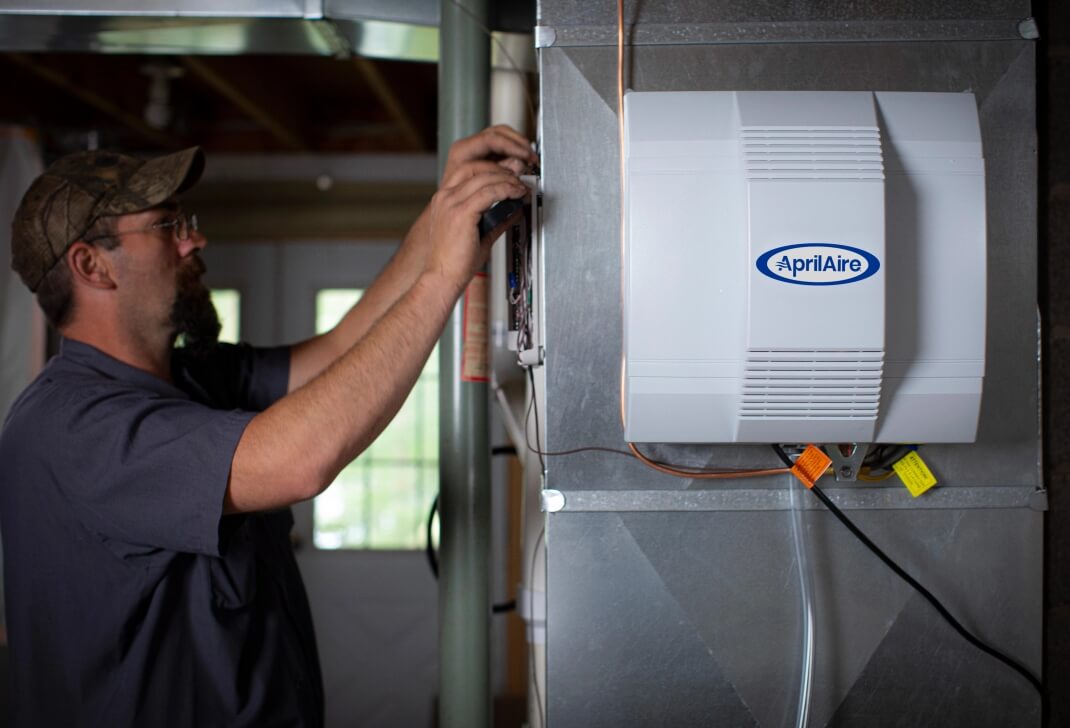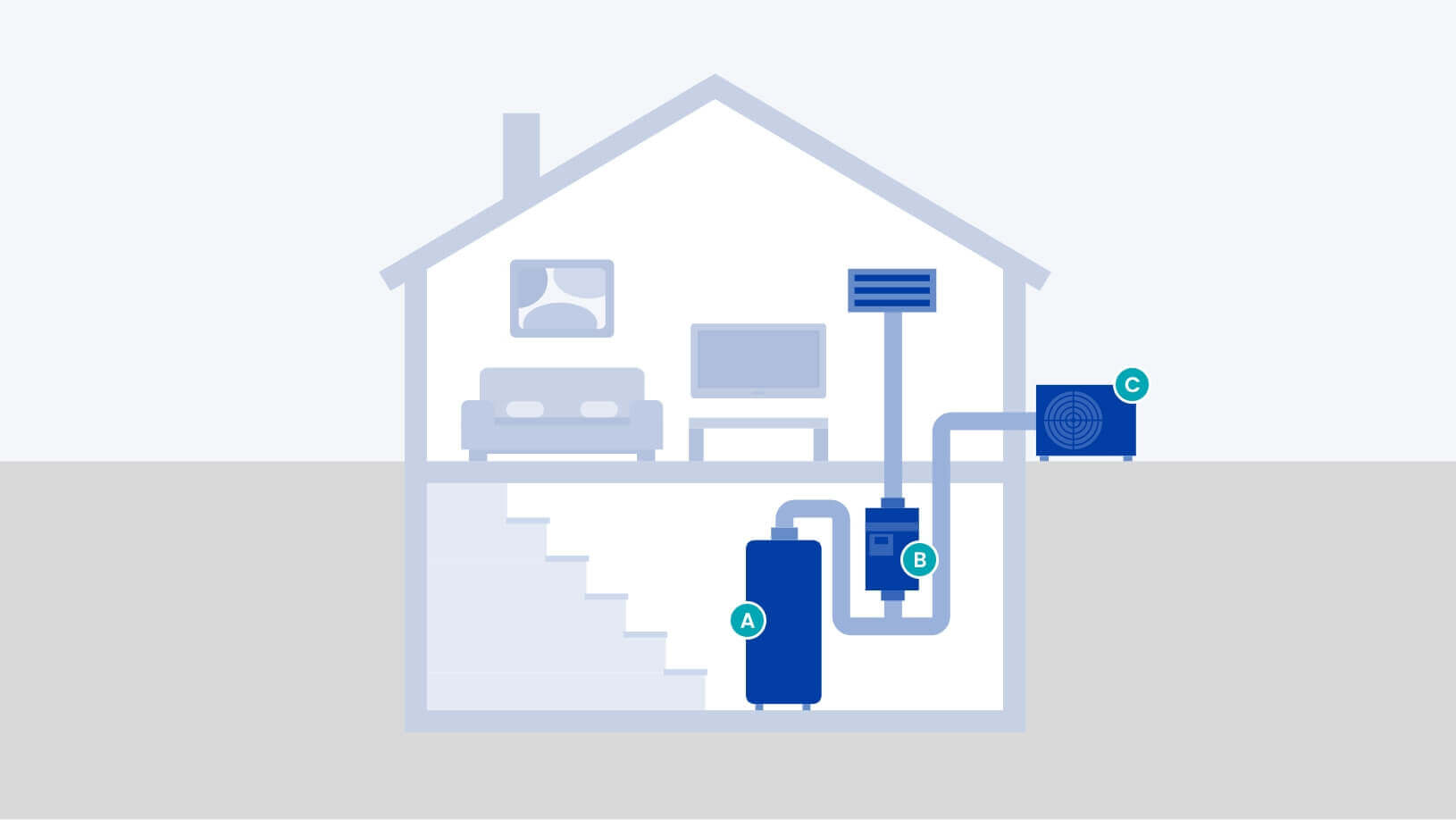An Extensive Consider Heating And Cooling Services and Their Influence On Energy Efficiency and Cost Cost Savings
With technical advancements like clever thermostats and high-efficiency components, the capacity for enhancing system efficiency is vast. As we check out the detailed connection in between Cooling and heating systems and operational expenses, consisting of the shift in the direction of environmentally pleasant options, the inquiry develops: how can these approaches be successfully implemented to take full advantage of both financial and ecological benefits?

Importance of Cooling And Heating Systems
heating and cooling systems are a vital element of modern buildings, playing a vital role in maintaining healthy and comfy interior atmospheres. These systems, incorporating ventilation, heating, and air conditioning, are necessary for controling temperature level, moisture, and air high quality, consequently making sure the well-being of passengers. Effective a/c systems add significantly to producing an optimal interior environment, which is crucial for both domestic and business areas.
In business structures, HVAC systems are important to providing a secure and productive atmosphere. By managing indoor climate problems, these systems aid prevent the growth of mold and mildew and the spread of airborne impurities, thus safeguarding the health of consumers and workers. Furthermore, in household setups, cooling and heating systems enhance living conditions by supplying regular thermal convenience and improving indoor air top quality, which is crucial for overall wellness.
Additionally, the layout and maintenance of HVAC systems have a direct impact on power consumption and operational expenses. Correctly made and kept systems can dramatically reduce power usage, resulting in reduced energy expenses and a smaller carbon impact. The efficiency of these systems therefore plays a crucial role in promoting sustainability and energy conservation within buildings, highlighting their importance in the modern-day building landscape.
Breakthroughs in Cooling And Heating Technology
Development in HVAC modern technology is changing the means structures handle indoor climates, ushering in a brand-new era of efficiency and control. Current innovations have concentrated on optimizing energy usage while improving individual comfort. One remarkable growth is the integration of smart thermostats, which use expert system to find out tenancy patterns and readjust temperatures as necessary, minimizing unnecessary power use.
Variable Cooling Agent Circulation (VRF) systems stand for one more substantial leap ahead. These systems enable for accurate temperature control in different zones of a building, enhancing convenience and decreasing energy waste. VRF modern technology is specifically valuable for huge commercial rooms, offering adaptability and scalability.
Additionally, the arrival of Internet of Things (IoT) gadgets has changed heating and cooling systems into interconnected networks efficient in real-time data collection and analysis. This connection allows predictive upkeep, making sure systems operate at peak performance and lessening unexpected downtime.
Moreover, developments in products and design, such as using high-efficiency coils and compressors, have actually improved total system efficiency - Heating Contractor. The adoption of eco-friendly cooling agents additionally underscores the sector's dedication to sustainability
These technical developments are critical in reducing operational expenses and environmental impact, establishing new standards for constructing environment administration.
Cooling And Heating Upkeep and Efficiency
Guaranteeing optimum efficiency of a/c systems extends past technical advancements; it also depends upon efficient upkeep techniques. Regular upkeep is vital for maintaining effectiveness, reducing energy intake, and extending the life expectancy of HVAC systems. The key goal is to guarantee that all parts operate at their peak possibility, thereby minimizing power waste and keeping constant indoor convenience degrees.
Routine maintenance jobs, such as cleansing or changing air filters, examining cooling agent levels, and inspecting ductwork for leaks, are vital for stopping unnecessary stress on the system. Stopped up or filthy filters can obstruct air movement, triggering the system to work more challenging and eat even more energy. Furthermore, inadequate refrigerant degrees can lower cooling down performance, leading to higher functional costs.
Additionally, regular evaluations by qualified professionals can determine possible issues before they escalate into costly fixings or system failings. These assessments typically consist of inspecting electric connections, adjusting thermostats, and making sure the general honesty of the heating and cooling system. By attending to minor problems early, home owners and organizations can avoid unforeseen break downs and improve power performance.
Cost-efficient A/c Solutions
For those wanting to obtain the most out of their air, home heating, and air flow conditioning systems without breaking the financial institution, discovering cost-effective cooling and heating solutions can make a significant difference. One instant measure is to invest in programmable thermostats, which enable customers to establish particular temperature levels for various times of the day, optimizing power usage and decreasing unnecessary usage. By automating temperature level modifications, property owners can accomplish substantial cost savings on energy bills.
Regular upkeep is another critical element of economical a/c management. Guaranteeing that filters are cleaned up or changed frequently, ductwork is secured, and devices are serviced by specialists can stop pricey repair services and improve system longevity. Preventive upkeep not only maintains system performance but also helps in avoiding unexpected breakdowns that can result in pricey emergency situation repair services.
Additionally, retrofitting existing systems with energy-efficient components, such as variable speed electric motors or high-efficiency compressors, can be a prudent financial investment. These upgrades improve operational efficiency, decrease energy usage, and can commonly be implemented at a fraction of the cost of a complete heating and cooling installation system substitute.
Ecological Impact Reduction
Minimizing the ecological influence of heating and cooling systems is important in today's quest of lasting living. Heating and cooling systems are considerable factors to power usage, representing nearly 40% of power usage in commercial structures. This power need often counts on fossil fuels, bring about greenhouse gas discharges and environmental degradation. Transitioning to extra effective systems, such as those utilizing renewable resource sources, can substantially mitigate these effects. all star heating and air
Technological innovations in HVAC style and operation, including the integration of wise thermostats and energy-efficient warm pumps, are essential in decreasing carbon footprints. These technologies permit enhanced energy use, minimizing wastefulness and enhancing total system efficiency. Additionally, taking on regular upkeep techniques makes certain cooling and heating systems run at peak efficiency, more cutting unneeded energy intake.
Moreover, making use of eco pleasant cooling agents is essential, as conventional cooling agents, like CFCs and HCFCs, have been terminated due to their ozone-depleting residential or commercial properties. Modern alternatives, such as hydrofluoroolefins (HFOs), deal minimized environmental threats, lining up with global ecological methods. By welcoming these lasting practices, heating and cooling solutions can play a transformative duty in decreasing environmental impacts, promoting energy performance, and promoting a more sustainable future.
Verdict

In addition, the style and upkeep of Heating and cooling systems have a straight impact on power usage and functional expenses. Normal maintenance is important for maintaining efficiency, Read Full Article minimizing power consumption, and expanding the life period of Heating and cooling systems. A/c systems are considerable factors to energy intake, accounting for almost 40% of power use in business buildings. Additionally, embracing regular maintenance techniques guarantees A/c systems run at peak effectiveness, more cutting unnecessary power intake.
The shift to environmentally pleasant A/c systems further reduces functional prices and promotes sustainability. (Heating Contractor)